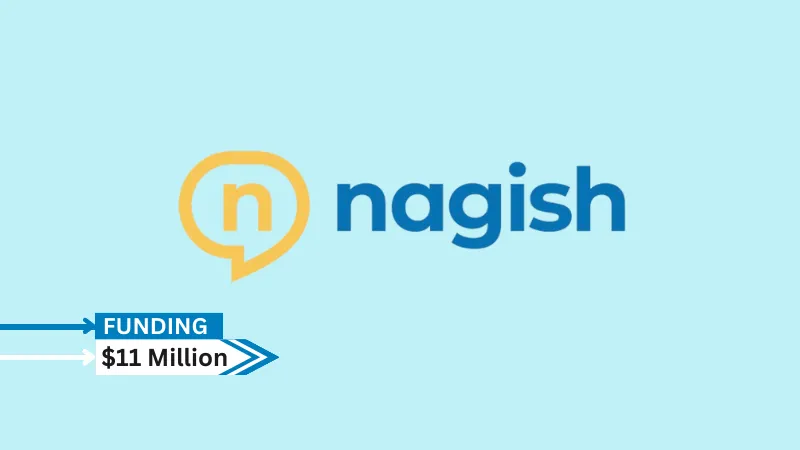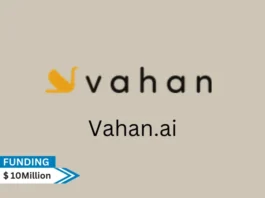

A $11 million Series A funding round has been raised by the Israeli startup Nagish, which uses artificial intelligence to allow the deaf to communicate over the phone. Canaan Partners spearheaded the funding effort, including participation from the creators of Looker and Datadog as well as current investors K5 Global, Tokyo Black, Cardumen Capital, Vertex Ventures Israel, Contour Venture Partners, and Precursor Ventures.
The business has raised $16 million thus far.With this support, Nagish—which translates to “accessible” in Hebrew—will be able to carry on creating communication solutions that will improve the sharing of knowledge, communication, and working capacities of more than a billion hard-of-hearing and deaf individuals globally.
Until recently, those with hearing or speech impairments who wanted to speak on the phone had to contact a company that offered telephone relay services. Representatives from the centre would then join the call and help convert voice to text and vice versa.
Nagish created a private relay service that eliminates the need for a human middleman when deaf and hard of hearing people interact over the phone. Real-time transcription, user-friendly interface customisation, and text display customisation are all made possible by this technology.
“At Nagish, we are aware of the disruption produced by generative artificial intelligence that turns simultaneous transcription and translation into basic products available to everyone, but we are not afraid of it. Today, it may seem like that’s all we do, but in practice, we are an accessibility company, and our solutions are much broader, with transcription being only a part of it,” explains Tomer Aharoni, the company’s CEO.
Nagish’s software is used by Comcast and Amazon. Aharoni says many deaf Amazon logistics workers require accessible solutions to communicate. He further notes that the U.S. Federal Communications Commission (FCC) recently authorised Nagish and five seasoned human translator organisations to provide automatic simultaneous translation services.
Read also- Singapore-Based Nika.eco Bags Undisclosed Amount in Seed Round Funding
The Israeli company will be paid every minute of a call made using its app after this inclusion. Aharoni estimates that the U.S. industry is worth $2 billion since sign language interpreters or simultaneous translators for the deaf earn $75 an hour and can only work a few hours. Thus, to hire a deaf person, a corporation must usually pay two sign language interpreters, making the job unprofitable.
An estimated billion individuals worldwide are hearing-impaired, including 800,000 in Israel. Medical issues and expensive expenses prevent some hard-of-hearing and deaf persons from wearing hearing aids.
The majority of deaf people cannot talk and require accessibility assistance. Aharoni notes that Nagish aims to expand in Canada, Japan, and Australia, where government programmes encourage deaf employment.
Read also- India-Based Felicity Games Secures $700K in Pre-Seed Round Funding
Aharoni (32) and his co-founder Alon Ezer (31), both Columbia University computer science grads, started the company as a pastime. Aharoni, an NLP expert, started creating an autonomous translation and transcription engine for the deaf in 2019, but the coronavirus epidemic accelerated the research in 2020.
The Israeli company’s accessibility app was downloaded heavily during the closure since many deaf individuals couldn’t communicate. Comcast first requested funds to develop a Zoom-based deaf communication service. Nagish now employs 18 people, mostly in the U.S., where Aharoni and Ezer are headquartered, but it hopes to expand in Israel to 30 by the third quarter.
About Nagish
Nagish (‘Accessible’ in Hebrew) aims to improve communication accessibility. People should be able to use phones without having their calls listened to. One side of a phone call can type and read while the other can hear and speak with Nagish’s real-time text-to-speech and speech-to-text.

![[Funding news] Israel-based Cybord Secures $8.7 Million in Series A Round Funding Cybord, a visual AI solution that guarantees the quality, authenticity, and traceability of electronic components, announced today that it has raised $8.7 million in Series A funding, led by Capri Ventures.](https://startuprise.org/wp-content/uploads/2024/09/Funding-news-Israel-based-Cybord-Secures-8.7-Million-in-Series-A-Round-Funding--265x198.webp)

![[Funding news] Vietnam-based NextBold Capital Eyeing $100 Million Fund to back SMEs NextBold Capital, a Vietnamese private equity firm, is interested in creating a $100 million fund to assist small and medium-sized enterprises (SMEs) in Vietnam, Cambodia, and Laos.](https://startuprise.org/wp-content/uploads/2024/09/Vietnam-based-NextBold-Capital-Eyeing-100-Million-fund-to-back-SMEs-265x198.webp)